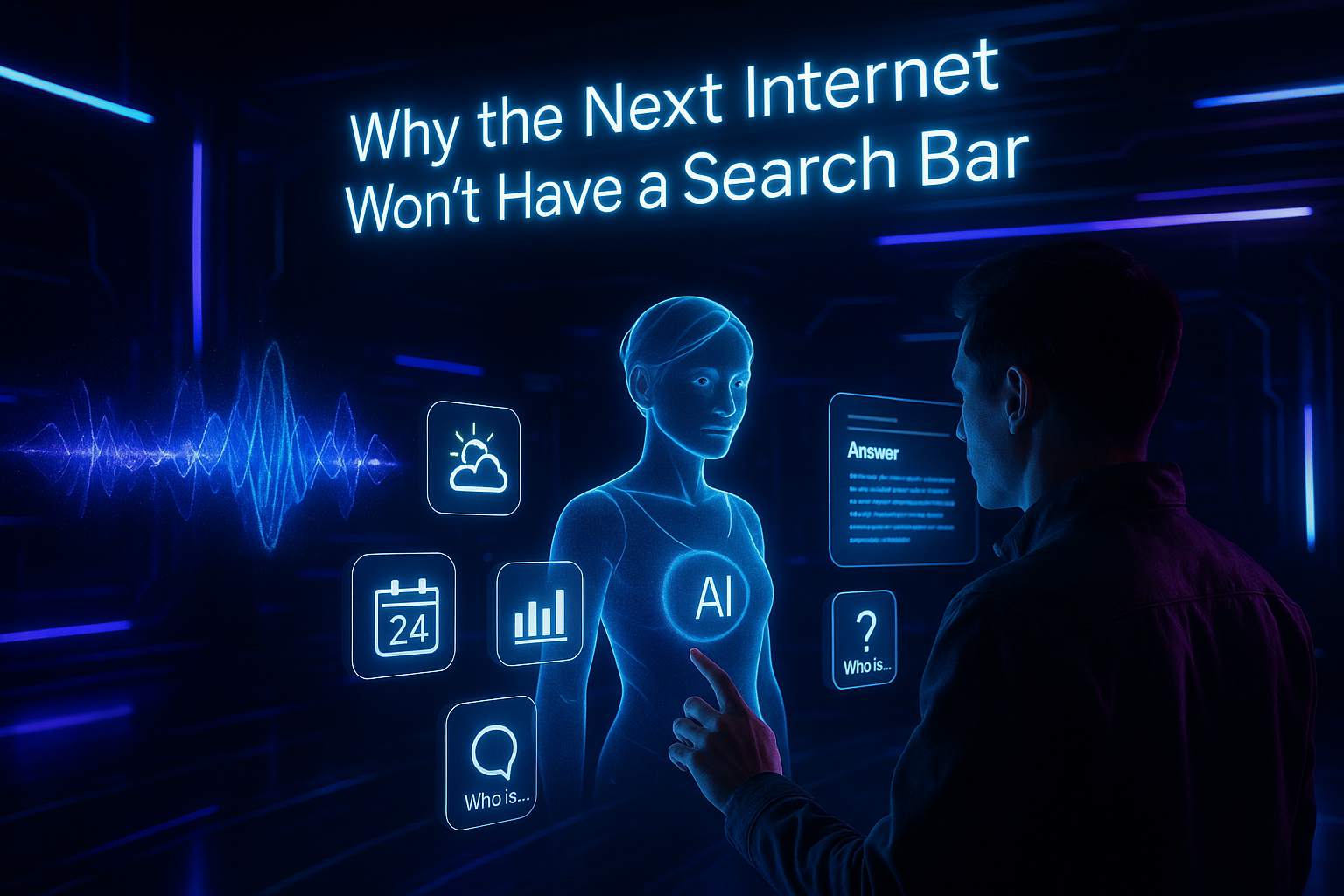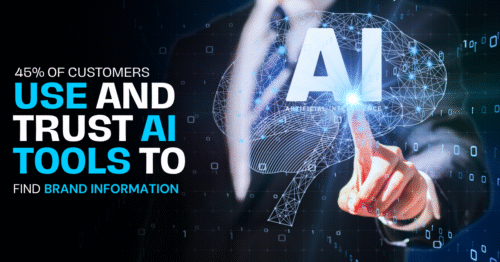The internet as we know it is undergoing a seismic transformation. For decades, search bars have been our entry point into the digital world, the place where we typed questions, keywords, or vague thoughts and hoped for useful results. But the next evolution of the internet is taking shape, and in this new era, the search bar may become irrelevant. Instead, AI-powered assistants, predictive interfaces, and context-driven experiences will reshape how we access information, services, and entertainment.
The Decline of the Traditional Search Bar
The search bar was built for an earlier version of the web, one where information was scattered across billions of static pages. Users had to navigate through endless links, relying on trial and error to find accurate information. While effective in its time, the model is slow, inefficient, and outdated for today’s real-time, personalized internet.
Platforms are already shifting towards conversational AI systems that eliminate the need for typing keywords into a box. Instead of manually searching, users are guided directly to answers, products, or services through voice commands, AI-driven recommenda
The Rise of Generative AI Interfaces
Generative AI has become the defining force behind the move away from search bars. With tools like ChatGPT, Google Gemini, and other advanced AI models, users can now ask natural-language questions and receive direct, context-rich answers instead of sifting through blue links.
These AI systems provide:
- Personalized responses tailored to user history and preferences.
- Summarized insights from multiple sources instead of overwhelming lists.
- Actionable results such as booking a flight, purchasing a product, or generating content instantly.
In this paradigm, the search bar becomes unnecessary because the AI interface itself becomes the internet’s front door.
Predictive and Ambient Computing: Information Before You Ask
The next internet will not only eliminate search bars but also the act of searching itself. With the rise of predictive algorithms and ambient computing, information will come to us before we even realize we need it.
For example:
- Smart homes will anticipate when groceries are low and suggest reorders automatically.
- Wearables will monitor health in real-time and deliver proactive recommendations.
- AR and VR environments will blend digital layers with physical spaces, surfacing information contextually as we move through the world.
Instead of searching for data, we will live inside an internet that constantly informs and assists us.
Voice and Conversational Interfaces Replacing Search
Voice assistants like Alexa, Siri, and Google Assistant were the first wave of this transformation. Now, with AI’s exponential improvement, conversational systems are becoming more natural, accurate, and proactive.
Rather than opening a browser and typing in a query, we will increasingly rely on voice-driven, conversational platforms that deliver results seamlessly. This shift means we will not ask the internet for information in the traditional way—we will talk to it, collaborate with it, and even let it act on our behalf.
AI-Powered Ecosystems and Walled Gardens
Another reason the search bar will vanish is the rise of closed digital ecosystems. Tech giants are increasingly building all-in-one platforms where users no longer need to search the open web.
- Amazon pushes users toward products within its marketplace.
- TikTok and Instagram are replacing Google for product discovery among younger audiences.
AI super-apps like WeChat in China demonstrate how a single platform can integrate messaging, payments, shopping, and information without requiring a search engine.
The future internet will be fragmented into intelligent ecosystems, where AI acts as the gatekeeper. The need for a universal search bar becomes redundant when the ecosystem itself delivers everything.
The Future of Discovery Without Searching
Instead of searching, we will rely on discovery engines that bring us what we want before we know we want it. These engines will rely on AI, data tracking, and behavioral insights to personalize experiences in real-time.
Examples include:
- Streaming platforms like Netflix and Spotify, which already anticipate what we’ll watch or listen to.
- E-commerce platforms that recommend products based on predictive buying behavior.
- News feeds that curate personalized headlines and insights, eliminating the need to search for news.
Discovery replaces search, and personalization replaces keywords.
Challenges of a Searchless Internet
While the benefits are undeniable, the disappearance of the search bar raises challenges:
- Privacy concerns: Constant predictive monitoring requires deep access to personal data.
- Information control: AI-driven results may limit exposure to diverse perspectives.
- Trust issues: With fewer links and sources visible, how do users verify credibility?
Despite these issues, the momentum is clear: the internet is moving away from manual searching toward automated, AI-powered delivery of information.
Adapting to the Next Internet
Businesses, marketers, and individuals must prepare for a searchless internet. Instead of optimizing for keywords and search rankings, success will depend on:
- Optimizing for AI assistants by providing structured, machine-readable content.
- Building presence inside digital ecosystems rather than relying solely on the open web.
- Investing in immersive experiences that connect with users in AR, VR, and voice-based platforms.
The winners in this new landscape will be those who embrace AI-driven discovery, anticipate user needs, and integrate seamlessly into predictive ecosystems.
The Role of Spatial and Immersive Web
The next internet is not just about smarter algorithms—it’s about new environments. With the rise of AR, VR, and spatial computing, the way we interact with information is radically changing.
Imagine walking through a city wearing AR glasses:
- Restaurant reviews, menus, and wait times appear directly on storefronts.
- Navigation prompts float in your field of vision.
- Social interactions seamlessly integrate into your physical surroundings.
In such a world, searching with a bar is not only unnecessary—it’s obsolete. The information lives within the environment itself.
Conclusion
The next internet will not be built around a search bar. It will be defined by AI, predictive computing, conversational interfaces, and immersive environments that fundamentally change how we interact with the digital world. Searching will no longer be a deliberate action—it will be a continuous, invisible layer of our lives.
Follow Us | Our Services | Contact Us | Linkedin | Instagram







